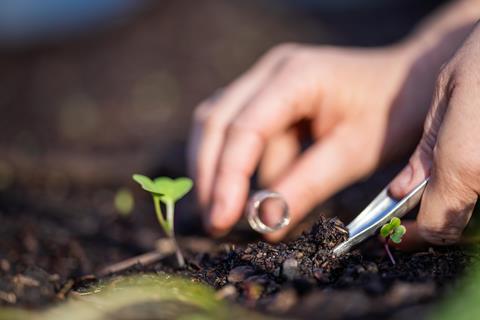So-called ‘microbial legacies’ could help scientists design more resilient farming systems

Microbial communities in soil have the capacity to remember and adapt to past environmental events, helping plants to withstand drought stress, new research has found.
Experts from the University of Nottingham’s School of Biosciences, in collaboration with scientists from the University of Kansas, found that soil microbes carry a long-term memory of past climate, and that this memory can shape how some plants respond to new droughts. The findings have been published in the journal Nature Microbiology.
Droughts are becoming more frequent and severe due to climate change, posing major threats to both crops and natural ecosystems. In the study, researchers investigated how long-term differences in rainfall shape soil microbes and whether these changes influence how plants respond to future droughts.
They analysed soils from six prairies in the US state of Kansas that experience very different levels of rainfall and identified specific microbes and microbial genes linked to rainfall history. They then tested how these microbial legacies affected the performance of plants during a controlled drought experiment.
They found that microbes from drier soils helped a native prairie grass cope better with drought, but they did not provide the same benefit to maize.
Dr Gabriel Castrillo, the group leader from the School of Biosciences at the University of Nottingham, explained how the results of the study could help develop climate-resistant crops in the future: “Soil microbial communities have the capacity to adapt quickly to environmental shifts, and help plants withstand drought stress.
“Remarkably, these microbial communities can also ‘remember’ past environmental conditions, a phenomenon known as legacy effects or ecological memory. Understanding these microbial legacies could help us design more resilient agricultural systems and protect ecosystems under future climate stress.”



